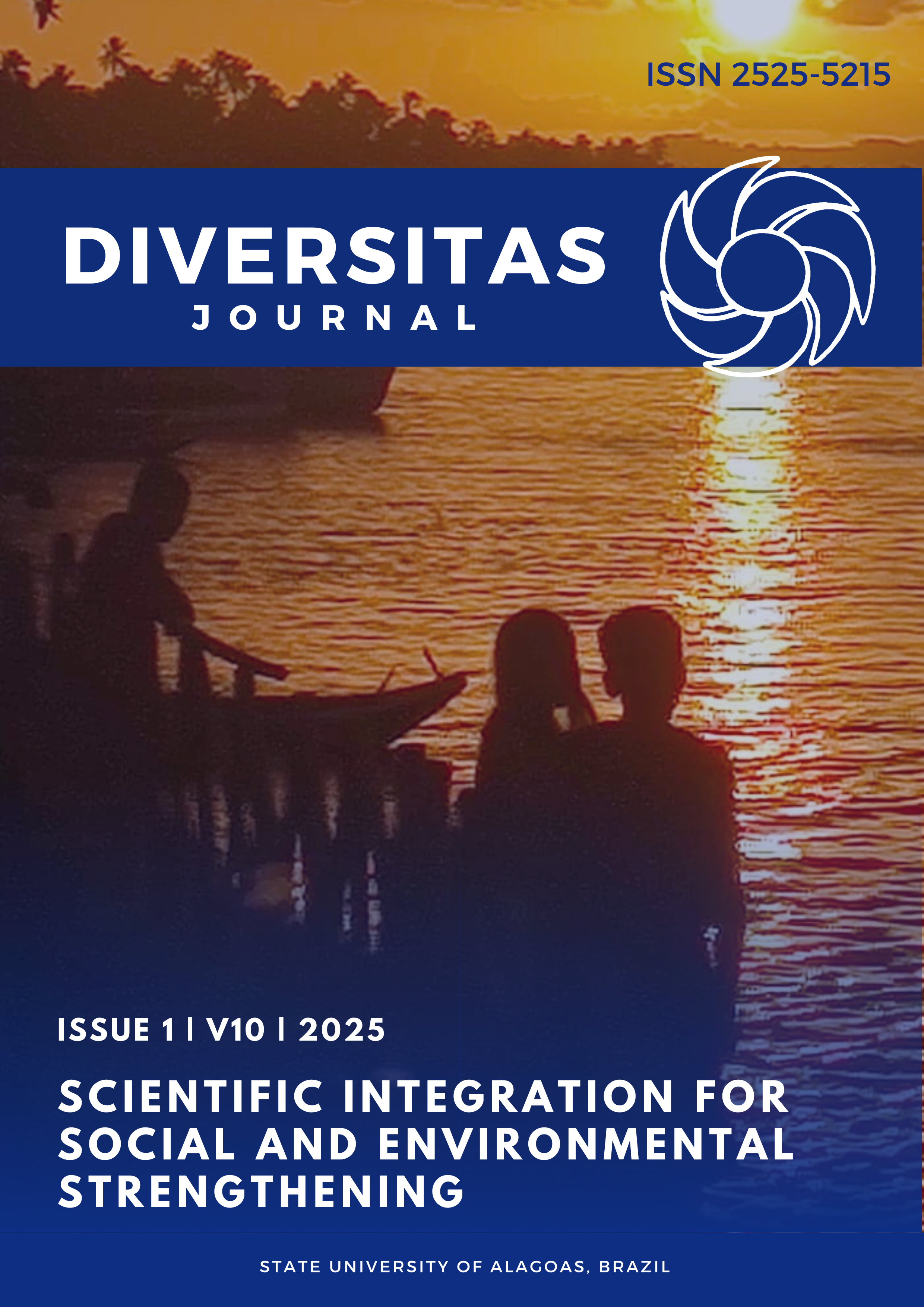Students vs. Teachers: Cultural Diversity Awareness in Online Learning
DOI:
https://doi.org/10.48017/dj.v10i1.3079Keywords:
Inclusive education, inclusive online learning, inclusive teaching, inclusive graduate programs, global educationAbstract
In an increasingly interconnected world, the importance of cultural diversity awareness within educational contexts cannot be overstated. Online learning environments, which transcend geographical boundaries, bring together students and educators from diverse cultural backgrounds. This study seeks to compare the levels of cultural diversity awareness between students and teachers, examining how these awareness levels influence educational practices and interactions. Utilizing a quantitative approach, the study surveyed a representative sample of students and teachers, finding that students exhibit a high level of cultural diversity awareness with a general weighted mean of 3.87, while teachers display an even higher level with a general weighted mean of 4.20. An independent t-test revealed a significant difference between the two groups (t=-4.32, p<.05), indicating that teachers possess significantly greater cultural diversity awareness. Factors influencing these levels were explored, highlighting the importance of exposure to diverse cultures, training in cultural competence, and institutional support. The findings suggest that higher cultural diversity awareness among teachers likely enhances inclusive teaching practices, thereby positively impacting student engagement and learning outcomes in online environments. These insights underscore the necessity of fostering cultural diversity awareness to create more equitable and effective online educational settings.
Metrics
References
Al-Obaydi, L. H. (2019). Cultural Diversity, Awareness and Teaching: A Study in an EFL con-text. The Journal of Asia TEFL, 16(3), 987–995. https://doi.org/10.18823/asiatefl.2019.16.3.15.987
Byrd, C. M. (2016). Does culturally relevant teaching work? An examination from student perspectives. SAGE Open, 6(3), 215824401666074. https://doi.org/10.1177/2158244016660744
Civitillo, S., Juang, L. P., & Schachner, M. K. (2018). Challenging beliefs about cultural diver-sity in education: A synthesis and critical review of trainings with pre-service teach-ers. Educational Research Review, 24, 67–83. https://doi.org/10.1016/j.edurev.2018.01.003
Ersoy, N. (2018). Towards a transcultural approach in online learning. IGI Global [PDF].
Evanick, J., EdD. (2023, April 28). The importance of feedback in personalized learning. eLearning Industry. https://elearningindustry.com/the-importance-of-feedback-in-personalized-learning
Gay, G. (2013). Teaching to and through cultural diversity. Curriculum Inquiry, 43(1), 48–70. https://doi.org/10.1111/curi.12002
Gay, G. (2018). Culturally Responsive teaching: Theory, Research, and Practice. Teachers College Press.
Hachfeld, A., Hahn, A., Schroeder, S., Anders, Y., & Kunter, M. (2015). Should teachers be colorblind? How multicultural and egalitarian beliefs differentially relate to aspects of teachers’ professional competence for teaching in diverse classrooms. Teaching and Teacher Education, 48, 44–55. https://doi.org/10.1016/j.tate.2015.02.001
Kumi‐Yeboah, A. (2019). Designing Cross-Cultural Collaborative online learning framework for online instructors. Online Learning, 22(4). https://doi.org/10.24059/olj.v22i4.1520
Kumi‐Yeboah, A., Dogbey, J., Yuan, G., & Amponsah, S. (2019). Cultural diversity in online learning. In Advances in educational technologies and instructional design book se-ries (pp. 230–251). https://doi.org/10.4018/978-1-5225-7802-4.ch012
McCrindle, M. (2014). The ABC of XYZ: Understanding the Global Generations.
Milheim, K. (2017). A fundamental look at cultural diversity and the online classroom. ELearn Magazine, 2017(2), 20170201. https://doi.org/10.1145/201702.3041614
Northouse, P. G. (2021). Introduction to leadership: concepts and practice. Thousand Oaks, California, SAGE Publications, Inc.
Parker, K., Graf, N., Igielnik, R. (2019). Generation Z Looks a Lot Like Millennials on Key So-cial and Political Issues. Pew Research Center. https://www.pewresearch.org/social-trends/2019/01/17/generation-z-looks-a-lot-like-millennials-on-key-social-and-political-issues/
Precones, M. C. D., Orlando Jr, A., Iglesia, J. I., Moreno, J. M. D., Royo, M. C. R., Saba, P. P. I., & Gumiran, I. C. (2023). The utilization of RTU flexible learning system (e-RTU) in relation to the academic performance.
Rissanen, I., Laine, S., Puusepp, I., Kuusisto, E., & Tirri, K. (2021). Implementing and Evalu-ating Growth Mindset Pedagogy – A study of Finnish Elementary school teachers. Frontiers in Education, 6. https://doi.org/10.3389/feduc.2021.753698
Special Populations and CTE Illinois Leadership Project. (2016). Cultural diversity self-assessment. Retrieved on August 2022 from https://edge.sagepub.com/sites/default/files/9.3_cultural_diversity_awareness_questionnaire.pdf
Warren, C. A. (2017). Empathy, teacher dispositions, and preparation for culturally responsive pedagogy. Journal of Teacher Education, 69(2), 169–183. https://doi.org/10.1177/0022487117712487
Downloads
Published
How to Cite
Issue
Section
License
Copyright (c) 2025 Melvin Ambida

This work is licensed under a Creative Commons Attribution 4.0 International License.
The Diversitas Journal expresses that the articles are the sole responsibility of the Authors, who are familiar with Brazilian and international legislation.
Articles are peer-reviewed and care should be taken to warn of the possible incidence of plagiarism. However, plagiarism is an indisputable action by the authors.
The violation of copyright is a crime, provided for in article 184 of the Brazilian Penal Code: “Art. 184 Violating copyright and related rights: Penalty - detention, from 3 (three) months to 1 (one) year, or fine. § 1 If the violation consists of total or partial reproduction, for the purpose of direct or indirect profit, by any means or process, of intellectual work, interpretation, performance or phonogram, without the express authorization of the author, the performer, the producer , as the case may be, or whoever represents them: Penalty - imprisonment, from 2 (two) to 4 (four) years, and a fine. ”


















